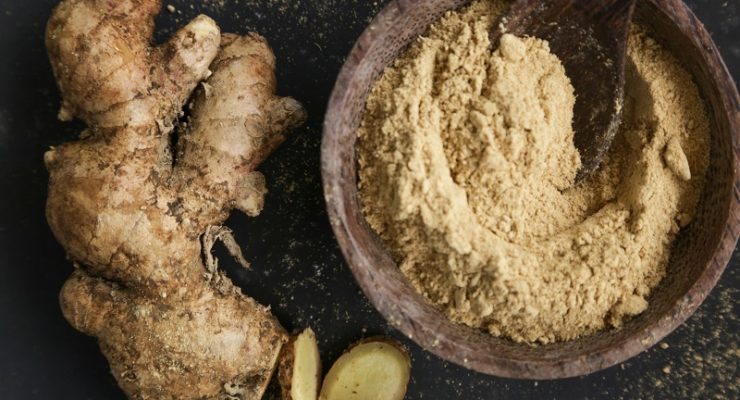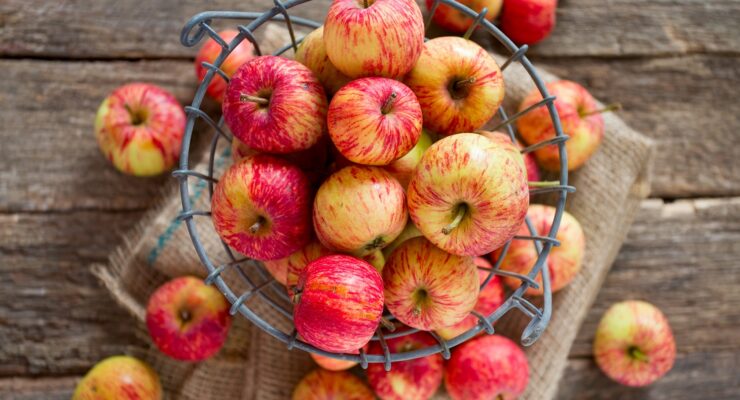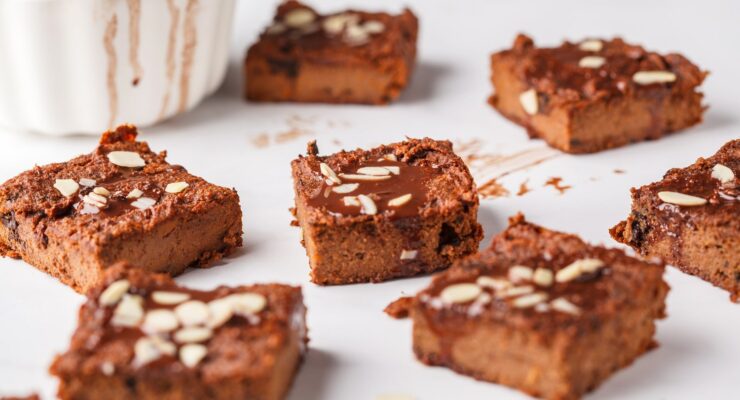9 Anti-Bloating Foods for a Flat Belly
Article posted in: Diet & Nutrition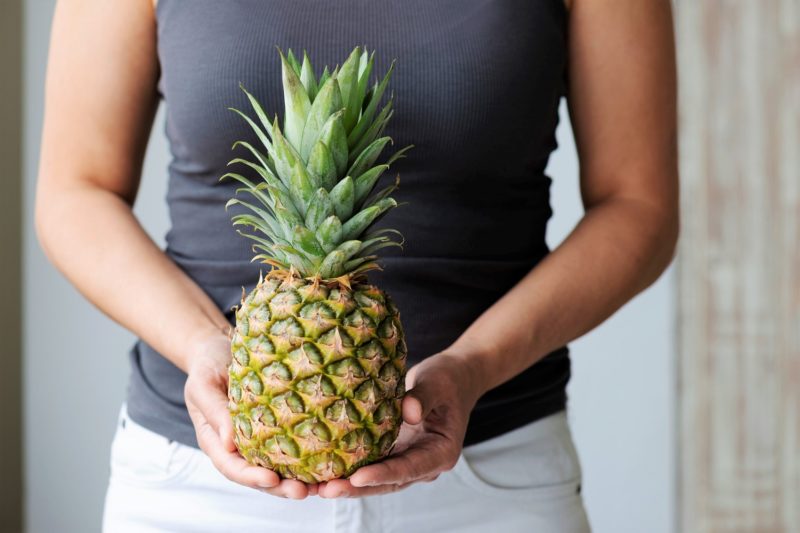
Bloating can feel like a cruel trick when you’re trying to lose weight. Even when you’re sticking with your healthy eating plan, you can get a noticeable bulge in your belly after eating. Not only does bloating make your midsection look bigger and your clothes feel tighter, the pressure in your abdomen can be uncomfortable and even painful at times.
Chronic bloating may be a symptom of a serious medical condition, but for most people it is an occasional problem that can be relieved with a few smart choices. Here’s what you need to know and what you can do to reduce it:
Bloating can happen when your body is retaining a lot of fluids, you have excessive amounts of solids in your gastrointestinal tract or gas is trapped in your digestive system. Irritable bowel syndrome, inflammatory bowel disease and various cancers can all be causes of bloating. If you experience frequent or sudden bloating, discuss it with your health-care provider to be sure you’re not suffering from one of these or another serious ailment.
Bloating may also happen when you have trouble digesting certain foods. Products containing wheat, such as bread, baked goods and cereal, can cause bloating for people who are sensitive to gluten. Consuming dairy products can result in bloating for people who cannot tolerate lactose. Kidney beans, black beans and other legumes may produce excess gas and bloating in some people who do not eat them regularly.
Constipation (defined as fewer than three bowel movements per week) is another frequent reason for feeling bloated. There are a wide range of causes for constipation but two to keep in mind are dehydration and insufficient fiber in your diet.
These anti-bloating foods may also help you prevent or relieve that abdominal discomfort. To help you include them in your diet, we’ve provided a few fresh ideas for how you can enjoy them.
1. Avocados

Your body often retains water and feels bloated when it has an excess of sodium. Potassium plays a vital role in helping your body manage its sodium levels. Avocados are rich in this important mineral, while also containing fiber that can help prevent constipation. Including avocados in your diet has also been shown to promote gut health, according to research from the University of Illinois College of Agricultural, Consumer and Environmental Sciences.
Try: We love avocados for so many reasons that we compiled 14 brilliant ways to use them. Your whole family will rave about rich and creamy Chocolate Orange Avocado Pudding.
2. Bananas

Bananas are one of our favorite anti-bloating foods. You also get plenty of potassium and fiber from this favorite fruit. It’s mild flavor and soft texture makes it especially easy to digest when your belly isn’t feeling its best. According to Medical News Today, bananas are less likely to cause bloating then apples and pears.
Try: Bananas are convenient to take with you and eat raw wherever you are. Try them in our 10 banana recipes to go bananas for! If you want to start your day with the goodness of bananas, check out the quick and easy three-step Banana Pancakes.
3. Beets

The dark-red roots are high in potassium and fiber, too, and have fewer calories per cup than bananas. They get their color from a compound called anthocyanin, which helps to support the microbes that break down food in your digestive tract, according to a study, published in the scientific journal Nature. Keeping these microbes healthy and active helps your body process food efficiently, reducing the risk of bloating.
Try: Make yourself Roasted Rosemary Beets and Carrots and see how sweet a serving of vegetables can be.
4. Cucumbers
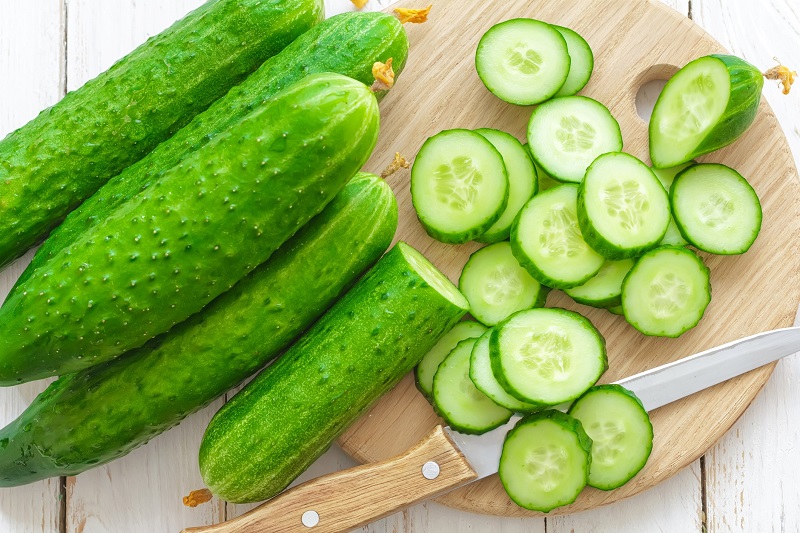
Cukes are mostly water, so they help you stay hydrated which can prevent constipation. Plus, cucumbers are a fiber-rich veggie that’s less likely to produce gas when you are digesting them than other vegetables.
Try: Crab Stuffed Cucumber Cups make a simple yet elegant meal that fills you up with protein and fiber.
5. Fennel Seeds

The fragrant seeds (they smell a bit like licorice) of this herb have a long history as a folk remedy for gas. They are high in fiber, which as we mentioned earlier, can help prevent constipation. According to Healthline, fennel seeds are anti-inflammatory and may help relax intestinal muscles, which may also help relieve constipation and gassiness. However, please note that more research is needed on this unique seed and its potential benefits.
Try: You can make a soothing tea with fennel seeds or add them as a flavoring to many meat or fish dishes.
6. Ginger

There’s a reason your mother gave you ginger ale when you had an upset stomach. Ginger contains a digestive enzyme called zingibain that helps relax and relieve inflammation in your digestive tract, letting food pass through your system smoothly and keeping you from feeling bloated.
Try: A warm cup of ginger tea is a quick remedy for bloating. To prevent it, make a batch of Wasabi Ginger Salad Dressing, which adds a zingy taste to bowls of fresh vegetables.
These anti-bloating foods may also help you prevent or relieve that abdominal discomfort. To help you include them in your diet, we’ve provided a few fresh ideas for how you can enjoy them.
7. Peppermint

Another traditional remedy for indigestion, peppermint has been shown to relieve gas and bloating by relaxing the muscles in the digestive tract. Most of the research on mint has focused on peppermint oil, which is derived from the leaves.
Try: Peppermint tea is simple to brew and you can enjoy it hot or cold. Our Strawberry Mint Smoothie recipe also includes plain Greek yogurt, another one of our favorite anti-bloating foods (more on that later!).
8. Pineapple

This sweet and juicy tropical fruit contains bromelain, an enzyme that breaks down proteins, helps with food digestion and may help with bloating, inflammation and swelling.
Try: You’ll find lots of tempting ideas on our list of delicious ways to eat pineapple! Cinnamon Sugar Air Fryer Grilled Pineapple is a sweet treat that’s high in nutrients and low in calories.
9. Yogurt

When you eat anti-bloating foods with probiotics, you nurture the microbes in your gut that manage digestion (and your immune system). Probiotics can help to decrease gas, bloating and constipation. Look for plain low-fat Greek yogurt with active cultures, one of the best sources of probiotics.
Try: You can use Greek yogurt in so many dishes. We love it in Spicy Greek Yogurt Dip, a flavorful way to enjoy raw veggies.
*Speak with your doctor if you experience frequent or sudden bloating. You should also speak with your doctor before making any changes to your diet.




